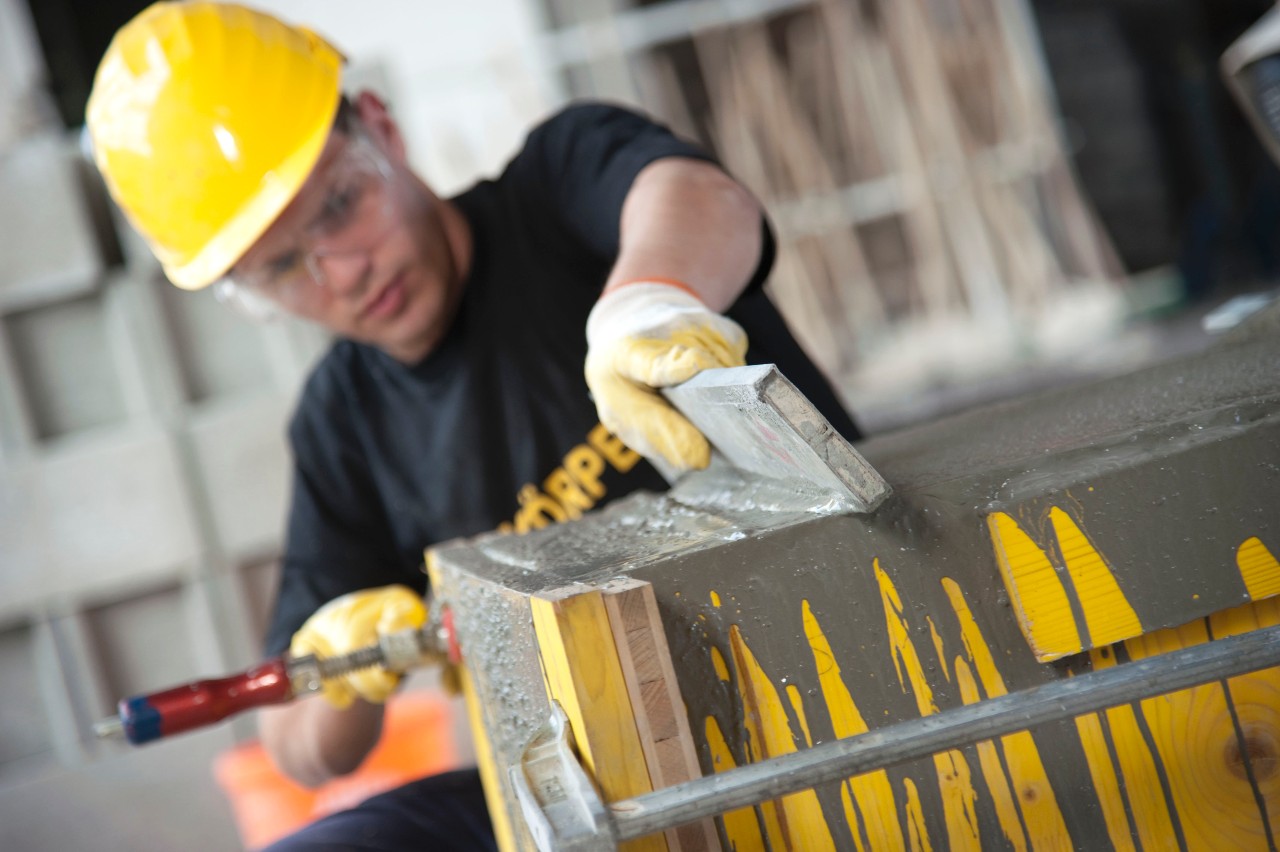Concrete Construction Work D1
A Concrete Construction Worker generally works on commercial and residential projects. There is a direct relationship between the nature and quality of the product required and the payment made by the customer. Therefore the Concrete Construction Worker has a continuing responsibility to work professionally in order to meet the requirements of the customer and thus maintain and grow the business.
Concrete Construction Work is closely associated with other parts of the construction industry, and with the many products that support it, normally for commercial purposes.
The Concrete Construction Worker works internally and externally, including on the homes of customers and on building sites, in all weather conditions and on small and major projects. He or she will interpret drawings, set out and measure, construct and finish to a high standard.
Work organization and self-management, communication and interpersonal skills, problem solving, innovation and creativity, working accurately are the universal attributes of the outstanding construction practitioner. The Concrete Construction Worker works in a team. Each team member takes on a high degree of personal responsibility and autonomy.
From working safely and tidily with resilience and endurance through to exceptional planning and scheduling, concentration, precision, accuracy and attention to detail to achieve an excellent finish, every step in the process matters and mistakes are largely irreversible and very costly.
With the international mobility of people, the construction practitioner faces rapidly expanding opportunities and challenges. For the talented Concrete Construction Worker there are many commercial and international opportunities; however these carry with them the need to understand and work with diverse cultures and trends. The diversity of skills associated with concrete and formwork is therefore likely to expand.
Career info
A professional in concrete construction work is closely associated with skilled individuals in other parts of the construction industry, and works with the many products that support it, normally for commercial purposes on varied types of building projects and sites.
They will interpret drawings, set out and measure, construct and finish to a high client standard. Exceptional skills in planning and scheduling, concentration, precision, accuracy, and attention to detail to achieve an excellent finish, are important.
Work organization and self-management, communication, and interpersonal skills, problem solving, innovation and creativity, and working accurately are the universal attributes of the outstanding construction practitioner.

